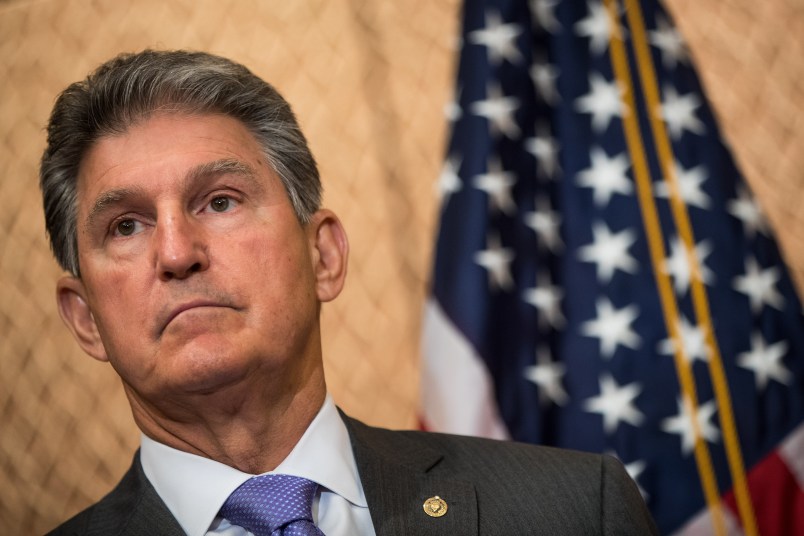Sen. Joe Manchin (D-WV), a key swing vote in a push to make the District of Columbia the nation’s 51st state, said Friday he does not support a bill supported by a vast majority of his Democratic colleagues to approve DC statehood.
“If Congress wants to make DC a state, it should propose a constitutional amendment,” Manchin said in a radio interview with West Virginia’s MetroNews Talkline on Friday. “Let the people of America vote.”
The comments come after the “Washington, D.C. Admission Act,” passed the House for the second time in history last week on a strictly party-line vote.
The bill already faced a long shot battle in the Senate, even if its supporters managed to win Manchin’s backing, due to the Senate filibuster which would require support for DC statehood from 60 senators in order to advance.
Manchin’s opposition to the bill, however, follows earlier efforts by the West Virginia Democrat to challenge calls from other Democrats to reform the filibuster.
He has also broken with Democrats on implementing a $15 minimum wage, and on some of President Joe Biden’s plans for federal spending and taxation.
According to the Washington Post, Manchin’s opposition comes as three Democratic colleagues have yet to take a stance, although one — Sen. Jeanne Shaheen (D-NH) — had cosponsored a bill for D.C. statehood in the last Congress. No Senate Democrats, aside from Manchin, have come out in opposition of the bill.
Manchin told the local radio station in his home state Friday that the issue would end up in the Supreme Court if his colleagues pursue a congressional path, arguing that DC must be added as a state by constitutional amendment.
“Every legal scholar has told us that,” Manchin said. “So why not do it in the right way and let the people see if they want to change?”
Del. Eleanor Holmes Norton (D) released a statement on Friday countering those claims, and arguing that the 23rd Amendment did not need to be repealed before Congress could grant statehood to DC.
“Those who make such an assertion are conflating a policy choice and a constitutional requirement,” she said, arguing that no new state had been admitted by constitutional amendment.
“All 37 new states were admitted by Congress, and there has never been a successful constitutional challenge to the admission of a state,” Norton said. “The Constitution commits admission decisions solely to Congress.”



